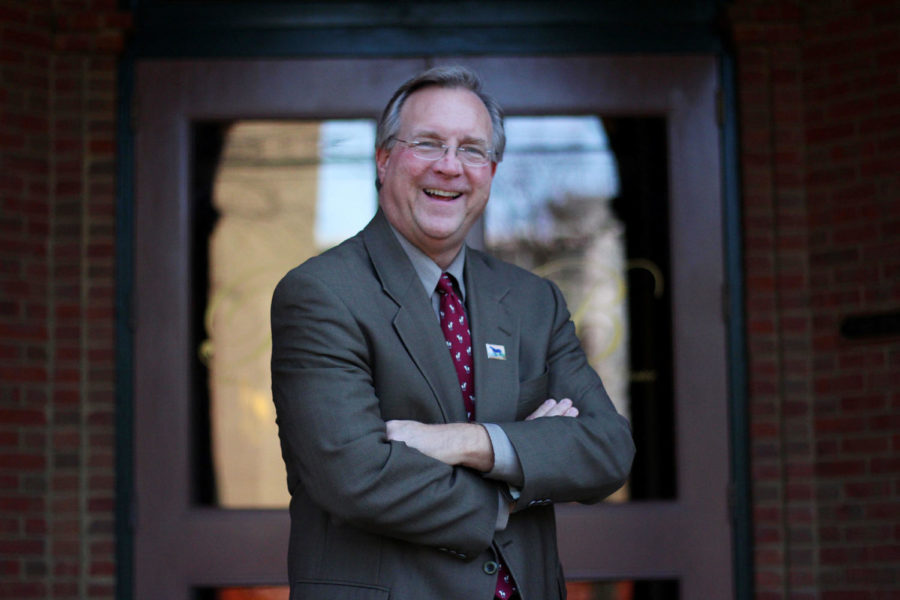Making his maestro
December 3, 2015
When students enroll in a class taught by associate professor Leland “Buck” Ryan, they can expect to be treated like journalists working for an editor rather than students working for a professor.
“I become the coach, the support,” said Ryan, who uses positivity and constructive criticism as tools to train the future journalists of America.
Originally from New York City, Ryan’s interest in journalism began when he entered caption writing contests for a local news publication.
He later translated this talent to writing headlines for the Chicago Tribune, where he spent the majority of his career, eventually working his way up to assistant metropolitan editor.
In the journalism world, Ryan is known for developing the Maestro Concept, which he described as a “teamwork approach to story planning.”
The concept, which Ryan developed in the early 1990s during his time as an assistant professor at Northwestern University, integrates all aspects of storytelling — including writing, photography, video and design.
Ryan said the concept is meant to accomplish five things: save time, reduce frustration, reduce costs, increase joy, and gather more responses from readers.
He currently serves as the director of the Citizen Kentucky Project of the Scripps Howard First Amendment Center and teaches courses on news reporting and editing.
Ryan spoke about the state of journalism, which has been highly examined in wake of the events at the University of Missouri because student photojournalist Tim Tai was restricted from documenting a protest against the university president.
“It’s just a manifestation of a larger problem, that universities around the country … don’t live up to the rhetoric that they’re graduating good citizens for democracy,” said Ryan, noting he is the only faculty member at UK to participate in every Constitution Day. Public universities like UK are federally mandated to celebrate the holiday.
According to Ryan, understanding First Amendment liberties are essential not just for journalists, but for any college student hoping to champion democracy.
“The First Amendment does not protect nice speech because nice speech does not need protection,” Ryan said. “The First Amendment protects wrong speech, harmful speech, even dangerous speech. That’s the American tradition. It’s something that we can all be proud of, because sometimes that crazy person is correct.”
































































































































































